While MuscleTech is known for innovation, they've got key staple supplement categories locked down tight, too.
That's demonstrated by AlphaTest Thermo, MuscleTech's fat-burning and testosterone-boosting hybrid formula. There's not too much to say about this formula because it's basic, but it works. The formula leads off with L-carnitine L-tartrate, which is an awesome fat burning and testosterone-boosting (sort of) ingredient, and finishes with three testosterone boosters that are very much in vogue.
Let's get into how it works, but first, the PricePlow news and deals:
MuscleTech Alpha Test Thermo – Deals and Price Drop Alerts
Get Price Alerts
No spam, no scams.
Disclosure: PricePlow relies on pricing from stores with which we have a business relationship. We work hard to keep pricing current, but you may find a better offer.
Posts are sponsored in part by the retailers and/or brands listed on this page.
Update: Looking for even more power? Then check out the upgraded MuscleTech Alpha Test Thermo XTR!
Ingredients
In a single 3-capsule serving of AlphaTest Thermo, you get the following:
Thermo Fire Plus Matrix
In this four-ingredient blend, we get the fat-burning ingredients in AlphaTest Thermo – although, as we'll see, some of these have androgenic effects as well!
-
L-carnitine L-tartrate – 1,000 mg
L-carnitine L-tartrate (LCLT) is an exceptionally bioavailable and rapidly-acting form of carnitine.[1] It's used when the goal is to optimize testosterone signaling.
One study, conducted in resistance-trained men with an average age of 22, found that LCLT can improve oxygen delivery to cells.[2] This is undoubtedly one of the mechanisms by which carnitine can support cellular-metabolic health.
The study also found that LCLT can increase androgen receptor (AR) density. This doesn't boost testosterone in the sense of increasing testosterone production, but it does amplify the effect of the testosterone you already have. So, the ultimate result is more or less the same – increased AR density helps promote muscle gains and recovery from exercise.[2]
As a matter of fact, increased AR density can cause serum testosterone levels to drop, as testosterone is taken up by cells and put to work.[2]
But make no mistake, LCLT is the androgenic form of carnitine.
Thermogenic
Many studies show that supplemental carnitine can encourage healthy weight loss[3,4] partly by increasing insulin sensitivity.[5]
Another key mechanism behind carnitine's anti-obesity effect is its upregulation of brown adipose tissue (BAT), a type of body fat that's metabolically active and burns calories as heat in a process called non-shivering thermogenesis.[6] In fact, carnitine is necessary for BAT to function properly.[6]
-
Caffeine (as caffeine anhydrous) – 225 mg
Caffeine is a methylxanthine alkaloid with stimulant effects in the central nervous system.[7-9] It helps decrease feelings of fatigue by inhibiting the action of adenosine,[10] a nucleotide byproduct of neuronal metabolism that causes fatigue as it builds up in the brain during the waking state.
However, caffeine's famous anti-fatigue effects are overshadowed by the stimulant's ability to crank up cellular metabolism. Caffeine inhibits phosphodiesterase, an enzyme responsible for breaking down cyclic adenosine monophosphate.[11,12] In doing so, caffeine raises cAMP levels and because cAMP instructs cells to burn calories for energy, this means you burn more calories than normal, too.[13]
Caffeine is particularly good for increasing fat oxidation. One study found that caffeine can cause your body to burn fat 50% faster than normal.[14]
Thanks to its impact on cellular metabolism, caffeine is a phenomenal ergogenic aid.[9] It's been shown to improve strength, speed, and endurance.[15] This can definitely help you burn more calories by helping you push yourself in the gym.
On the mental side of things, caffeine can also increase attentiveness[11,16] and vigilance,[11] speed up reaction times,[16] and improve working memory.[12]
-
aXivite Microencapsulated Phenylcapsaicin – 62.5 mg
Phenylcapsaicin is a trademarked form of capsaicin, a bioactive molecule that occurs naturally in chili peppers and causes the characteristic burning sensation upon eating them that people generally either love or hate.
According to aXichem, the manufacturer of aXivite, adding the phenyl group to capsaicin helps make it more chemically stable, and thus consistently beneficial as a nutritional supplement.
So, now that we have a cool stabilized form of capsaicin, how does capsaicin itself work?
In animal studies, capsaicin has been shown to decrease insulin resistance in overweight mice while also lowering their blood sugar and defatting their livers.[17] Other research shows that capsaicin can prevent the accumulation of fat in liver tissue, even in animals that are fed a high-fat diet.[18]
Capsaicin can even help protect the liver from damage caused by alcohol consumption.[19]
In short, capsaicin is a type of liver health tonic. Liver health is key for overall metabolic health as liver dysfunction is implicated in insulin resistance, poor glycemic control, and other metabolic consequences.[19,20]
Supplementing with capsaicin can downregulate inflammatory messengers like tumor necrosis factor alpha (TNFα), interleukin-6 (IL-6,) and monocyte chemoattractant protein-1 (MCP-1).[17] In the long run, this can support metabolic health by helping support liver function.
According to a research review published in 2017, even doses as small as 6 milligrams per day of capsaicin can produce fat loss.[21] We have 10 times that dose in AlphaTest Thermo.
A big part of capsaicin's anti-obesity effect is its ability to trigger brown adipose tissue (BAT) activity,[21] which we discussed in the LCLT section. Other research has shown that capsaicin can prevent the growth of new fat cells by downregulating adipogenesis.[21]
It's no surprise, then, that capsaicin has been shown in animal models to cause a significant increase in the number of calories burned daily.[21]
Phenylcapsaicin safety
The European Commission, the EFSA Panel on Nutrition, Novel Foods and Food Allergens (NDA) (which is, speaking frankly, much more strict than the FDA) has designated phenylcapsaicin as safe for proposed uses and doses.[22]
-
Grains of Paradise Extract (as Aframomum melegueta) (seed) – 20 mg
Grains of paradise is a pepper plant hailing from western Africa. It contains lots of 6-paradol, a flavor constituent also found in ginger that has been shown to speed up fat burning.
The mechanism of action behind 6-paradol's anti-obesity effects is, again, its ability to stimulate metabolic activity in brown adipose tissue (BAT).[23,24] This increases the number of calories your body burns in non-shivering thermogenesis.
In one randomized controlled study, researchers directly measured the rate of calorie burn in 19 healthy men, aged 20 to 32, who'd just taken 40 milligrams of grains of paradise extract. Compared to a placebo group, the men treated with grains of paradise burned significantly more calories when exposed to a cold temperature,[23] which makes sense since the function of non-shivering thermogenesis is to preserve body temperature in the face of cold exposure.
Another study in women aged 20 to 22 reached similar conclusions,[24] finding that grains of paradise can decrease visceral fat levels.[25] This is a big deal since visceral fat is, again, closely linked to metabolic dysfunction in the form of insulin resistance, metabolic syndrome, and diabetes.[25]
Just to give you an idea of how damaging visceral fat can be – and its probably causal role in metabolic derangement – one study found that surgically removing visceral fat from rats completely prevented the metabolic decline typically seen with aging.[26]
Test and Vitality Matrix
Next, we have the three testosterone-boosting ingredients in AlphaTest Thermo:
-
-
Fenugreek Extract (as Trigonella foenum-graecum) (seed) – 600 mg
To top it all off, fenugreek can boost libido too!
Fenugreek has been shown to increase both total and free testosterone while also improving certain testosterone-related traits like strength, body composition, and sex drive.[27,28]
In one randomized, placebo-controlled study, 60 healthy males took either fenugreek or a placebo for eight weeks. By the end of the study period, the fenugreek had significantly more free testosterone,[28] which is the kind of testosterone we really want since it's not bound to sex-hormone binding globulin (SHB) and thus biologically active.
These results have been repeated using several different preparations of fenugreek.[29]
At least one of fenugreek's mechanisms of action is its ability to inhibit aromatase, an enzyme responsible for converting testosterone to estrogen.[30]
-
Boron Citrate – 200 mg
Boron is a mineral that's implicated in testosterone and vitamin D synthesis.[31] Since vitamin D is itself capable of increasing testosterone production,[32] this means that boron both directly and indirectly supports higher testosterone levels.
Besides helping your body make vitamin D, boron can also increase its half-life, meaning that the vitamin D you do make lasts longer. This helps maintain higher peak concentration of vitamin D in your blood.[33]
One 2011 study found that supplemental boron can increase free testosterone – again, the biologically active form of testosterone – while downregulating estrogen.[33] However, as promising as this study seems, it had a sample size of only eight subjects, which is pretty small. So, you may wish to take this result with a grain of salt.
Nevertheless, boron's pro-vitamin-D effect is supported by plenty of evidence, as is its ability to increase the body's capacity to use magnesium,[31] another mineral that's needed for peak testosterone production.[34]
-
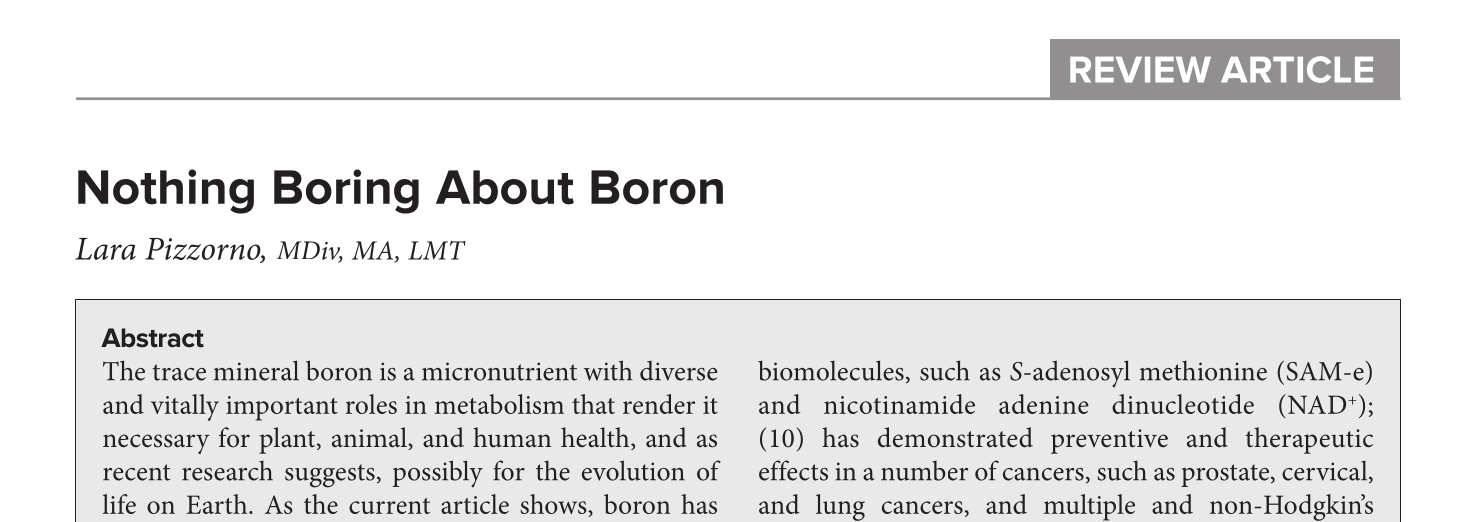
One of our favorite articles to cite. Boron is possibly the vitamin D booster we've really been looking for.
-
Longjack Extract (as Eurycoma longifolia) (root) – 50 mg
Longjack, also known as tongkat ali, has been used as a testosterone-booster staple for several years now. Originally identified as an aphrodisiac by folk medicine, longjack's efficacy has come to be supported by peer-reviewed scientific literature.
One study from 2012 found that longjack can increase sperm motility by 44% and libido by 14%.[35] While the mechanism of action here might be testosterone boosting,[36] the study in question used a dose of 300 mg/day, whereas we have only 50 milligrams in one serving of AlphaTest Thermo.
According to a 2017 meta-analysis on longjack, its status as a testosterone booster is far from settled.[37] The current state of research is preliminary, but promising. The authors expect further research to confirm that longjack is a potent T booster.
Longjack may also be a powerful antioxidant and anti-anxiety supplement.[38]
-
Zinc (as zinc oxide) – 11 mg (100% DV)
Zinc is one of the absolute most important nutrients for optimizing testosterone production. It's sometimes referred to as the master mineral of the male endocrine system.
Zinc exerts its benefits through a variety of ways, from structural support to antioxidant support to beneficial chemical displacement, leading to systemic health improvements
Even a minor zinc deficiency can tank testosterone production. In one study where scientists induced a "marginal" zinc deficiency by restricting subjects' dietary zinc intake, testosterone levels dropped by a whopping 75% — from 40 nmol/L to roughly 10 nmol/L.[39]
The same researchers found that giving zinc to elderly men with a slight zinc deficiency increased their testosterone levels by 100% – from 8 nmol/L to 16 nmol/L.[39]
Even if you're not deficient in zinc, supplementation can still increase your production of dihydrotestosterone (DHT),[40] one of testosterone's most important metabolites that produces the masculinizing effects associated with androgenic signaling.[41]
Conclusion
AlphaTest Thermo is solid. Between the LCLT, the fenugreek, and the longjack, we'd be pretty surprised if you didn't see androgenic effects. And, as the title of one 2015 study states, "There's nothing boring about boron".[31]
MuscleTech Alpha Test Thermo – Deals and Price Drop Alerts
Get Price Alerts
No spam, no scams.
Disclosure: PricePlow relies on pricing from stores with which we have a business relationship. We work hard to keep pricing current, but you may find a better offer.
Posts are sponsored in part by the retailers and/or brands listed on this page.
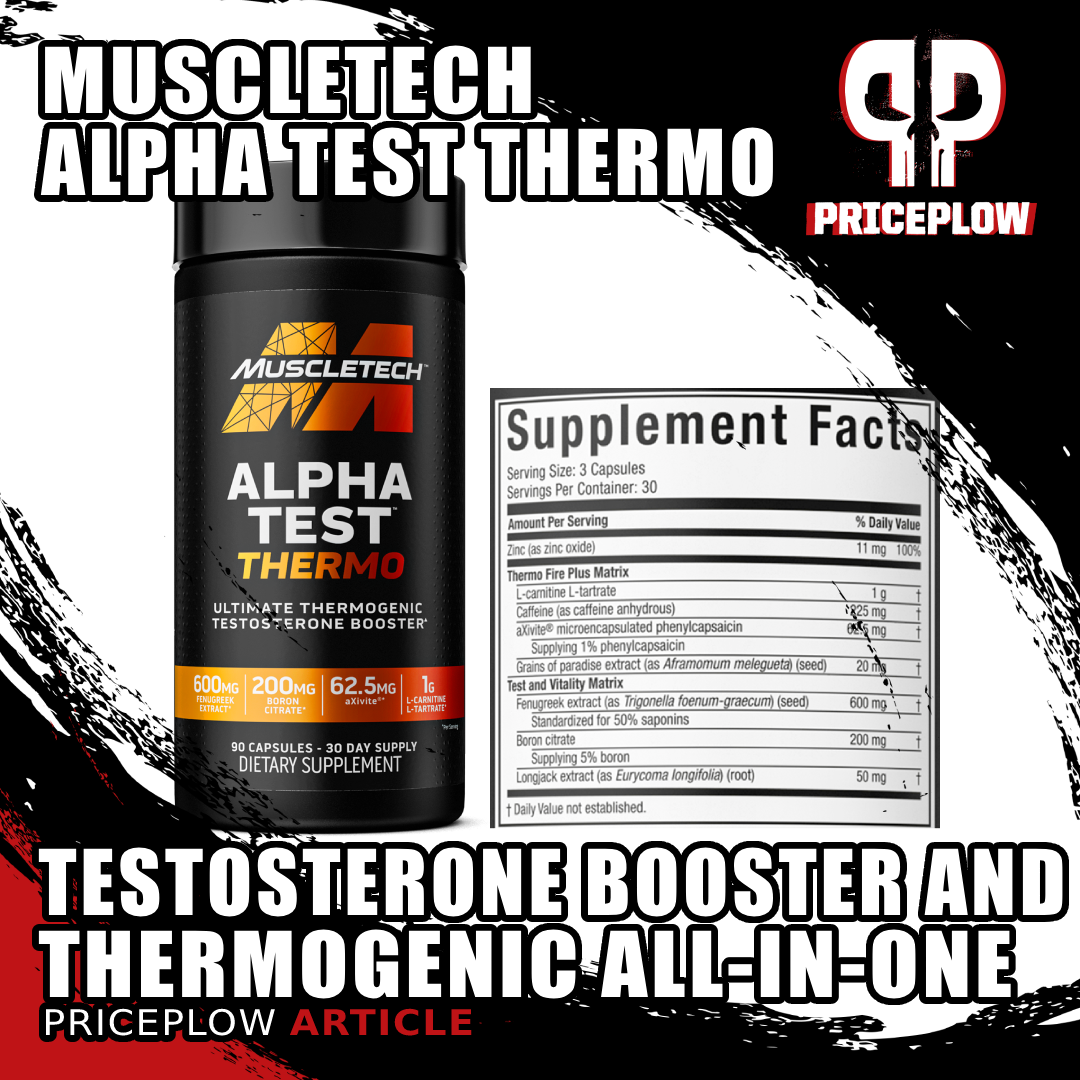
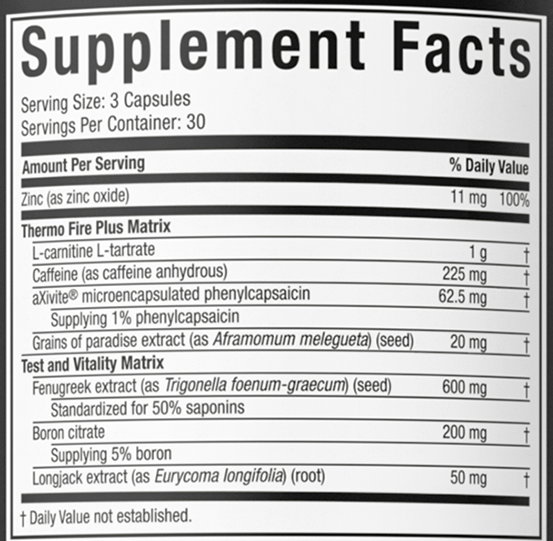
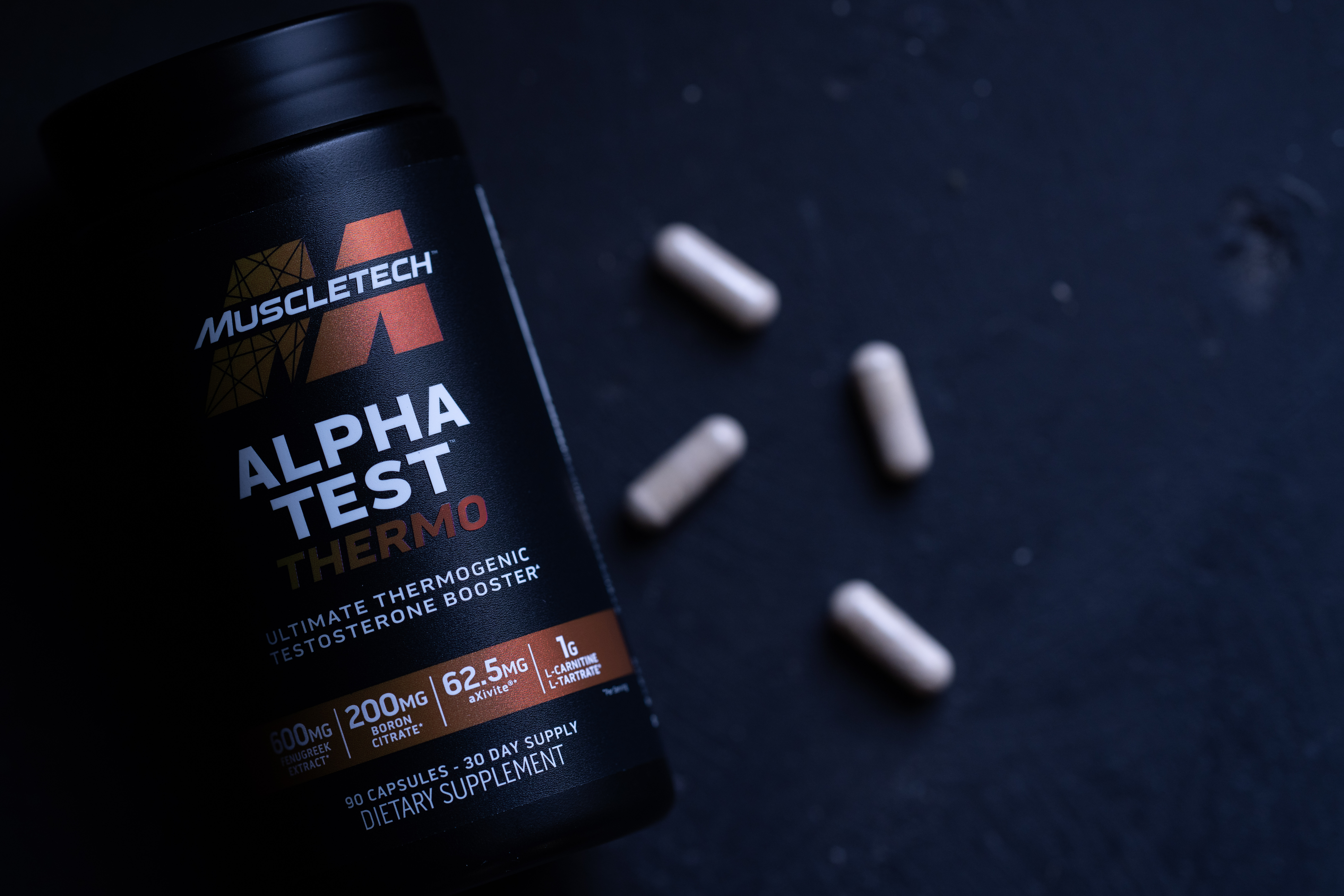
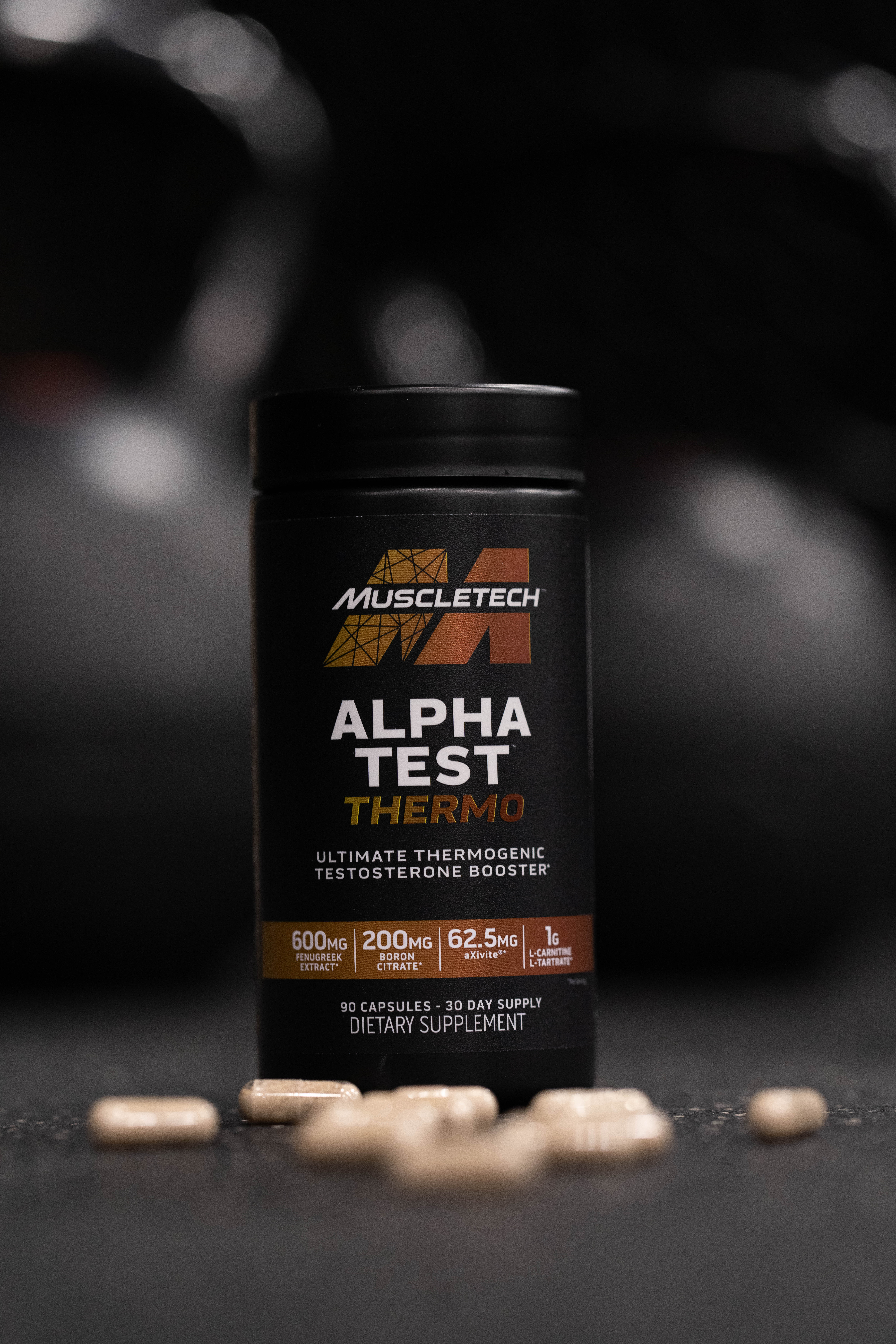
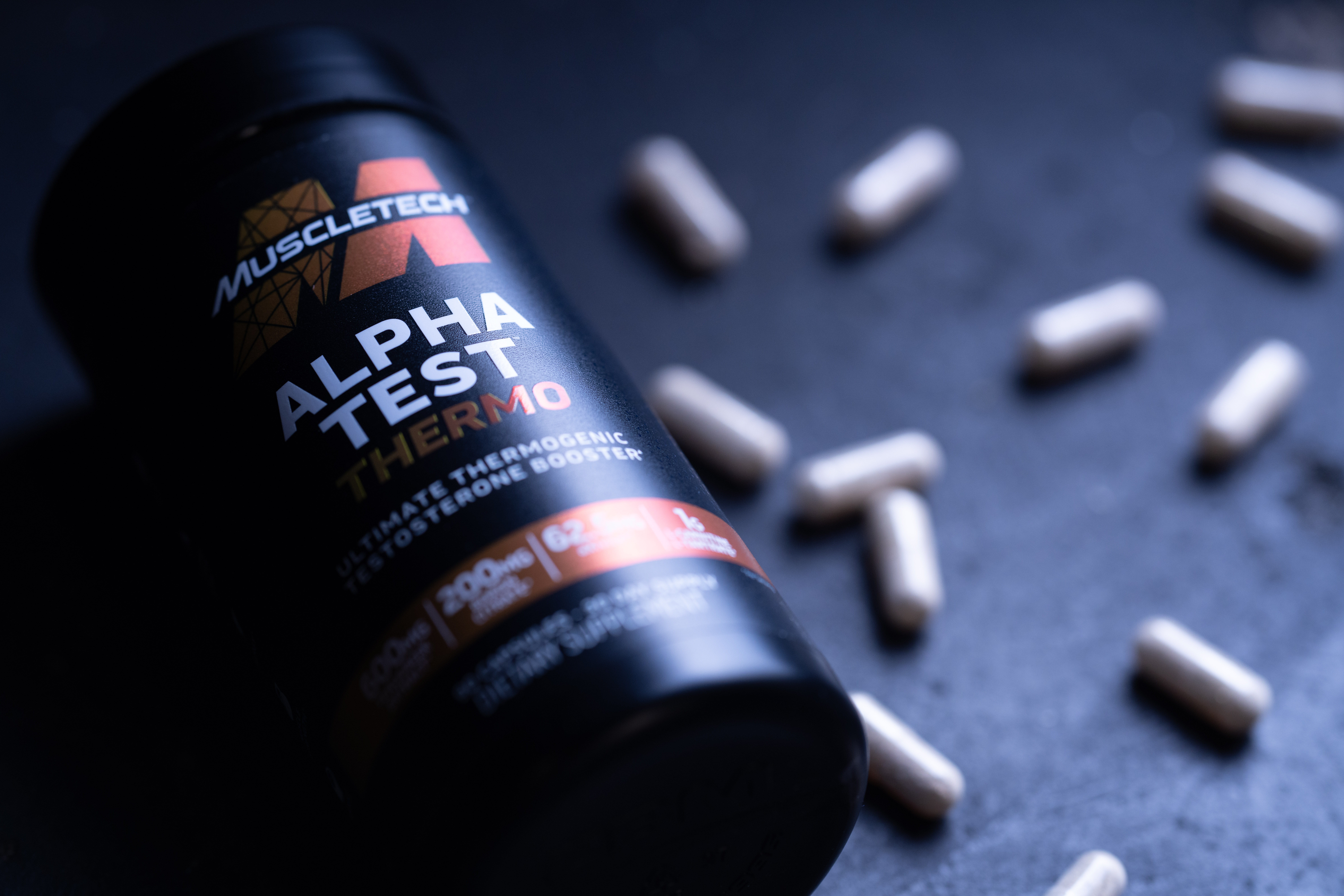
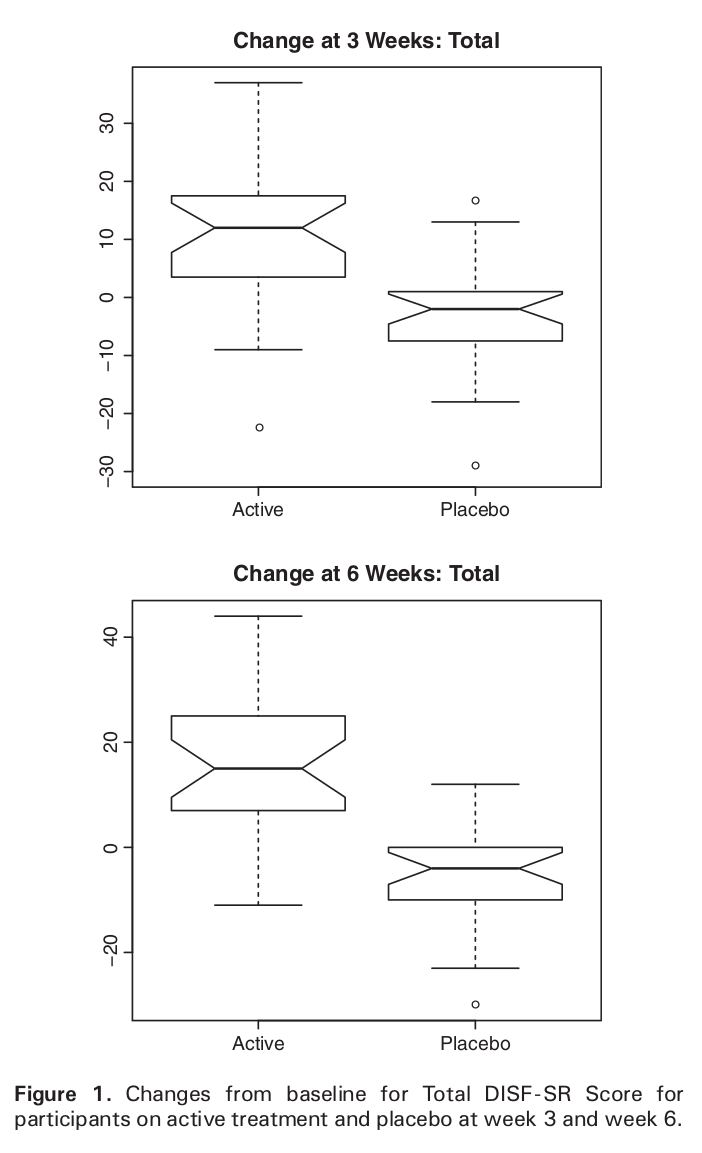
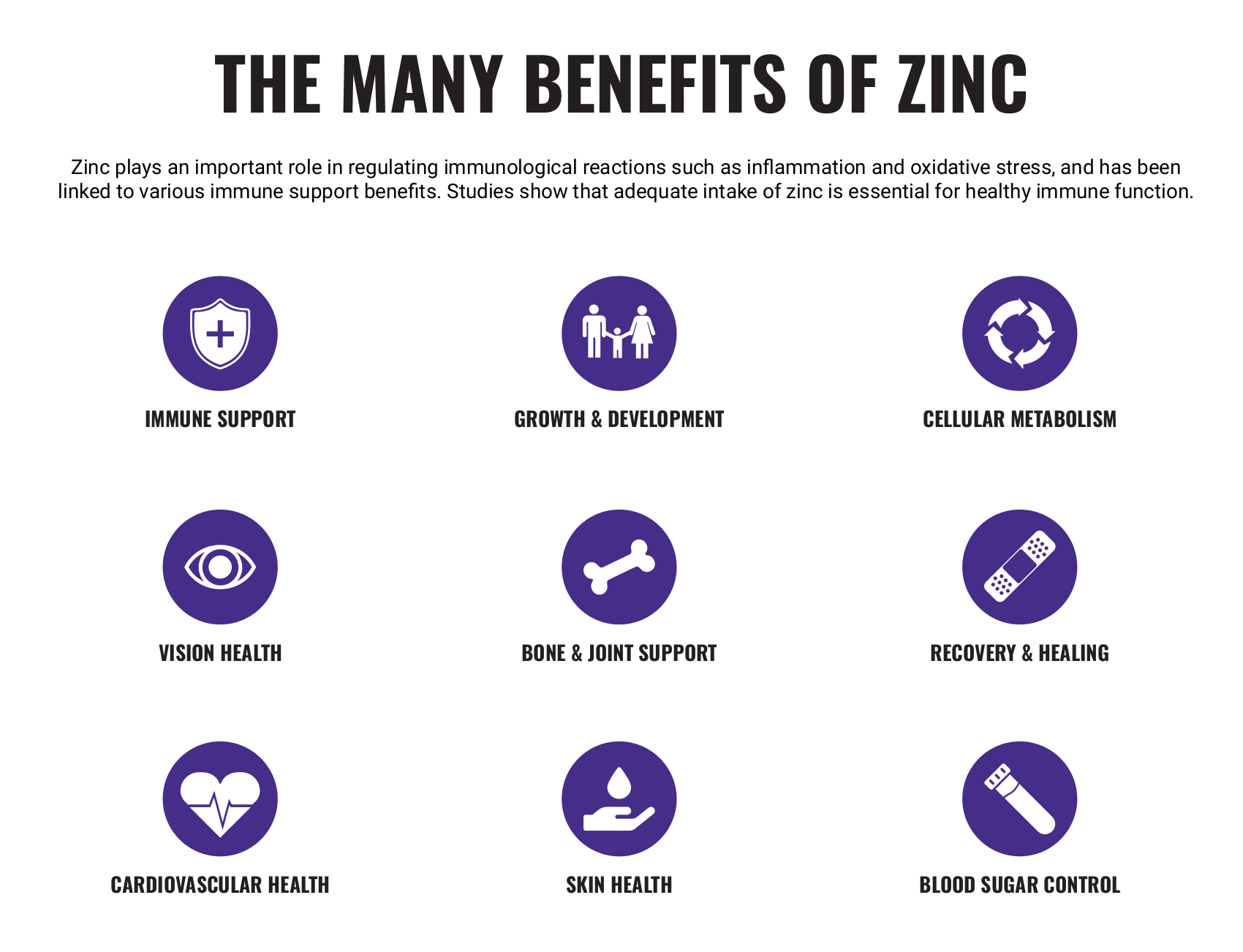


Comments and Discussion (Powered by the PricePlow Forum)